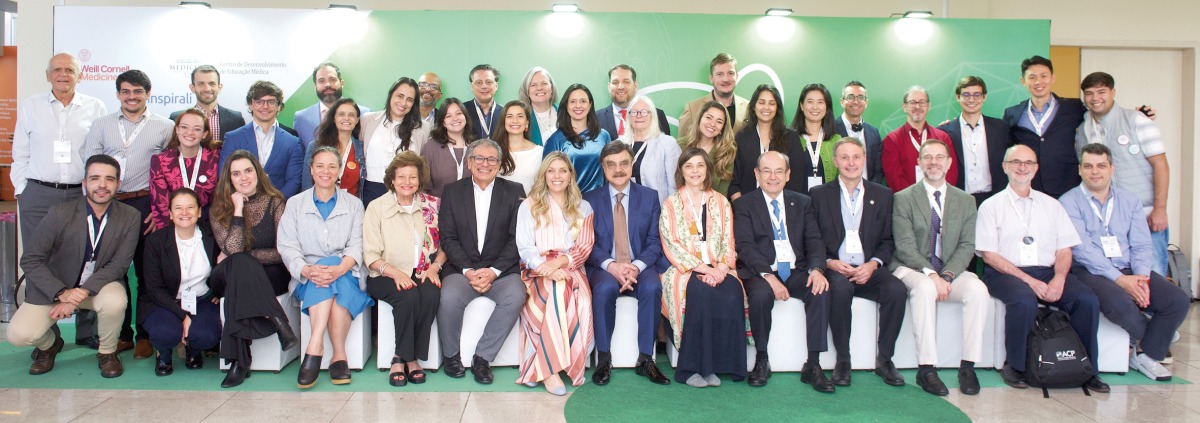Weill Cornell Medicine-Qatar (WCM-Q) recently collaborated with the Centre for the Development of Medical Education at the Faculty of Medicine, University of São Paulo (CEDEM-FMUSP) to host a global congress on precision health innovations and education in São Paulo, Brazil. Precision health is a groundbreaking approach in healthcare that utilizes advanced technologies and personalized data to gain a comprehensive understanding of an individual’s unique biology, environment, and lifestyle factors. By leveraging evidence and data, precision health aims to improve individual lifespans by addressing specific determinants of health.
The international congress, titled ‘Transforming Health Professional Education, Research and Care (PHIE-CIIPES),’ brought together leading experts from around the world to explore how the latest innovations, approaches, and technologies are reshaping medical education, translational research, and precision care. Discussions at the congress included topics such as how extended reality is transforming classrooms and emergency rooms, how artificial intelligence is revolutionizing learning, disease diagnostics, and treatments, and how wearable technologies are uncovering the impact of climate change on health. Additionally, Brazilian education-tech and health-tech startups had the opportunity to pitch their groundbreaking ideas.
WCM-Q experts actively participated in various workshops and panel discussions at the congress, addressing important issues such as leadership in the workplace, breaking gender barriers in science, the ethics and macroeconomic implications of big data and AI, the future of medical education, patient advocacy, and innovation in health education and precision health. The event attracted approximately 700 attendees, including medical educators, students, health practitioners, researchers, policymakers, and innovators, highlighting the global interest and commitment to precision health.
Dr. Javaid Sheikh, Dean of WCM-Q, emphasized the importance of the congress in bringing together renowned researchers and experts to drive positive transformation in health professions education, research, and patient care. He highlighted the need for collaboration and knowledge-sharing to create a future where healthcare is participatory, proactive, and precise. Dr. Sheikh emphasized the importance of combining innovation with sustainable and inclusive practices to ensure that advancements in healthcare benefit all individuals. The congress was a significant gathering of the global healthcare community, showcasing the advancements in precision health and the commitment to improving healthcare worldwide.
Overall, the collaboration between WCM-Q and CEDEM-FMUSP in hosting the global congress on precision health innovations and education in São Paulo, Brazil, was a success. The event brought together experts from around the world to explore the transformative potential of precision health in reshaping medical education, research, and patient care. The discussions on extended reality, artificial intelligence, wearable technologies, and other innovative approaches underscored the importance of embracing cutting-edge technologies in healthcare. The congress provided a platform for sharing knowledge and driving positive change in the healthcare industry, emphasizing the significance of collaboration and innovation in advancing precision health worldwide.


























